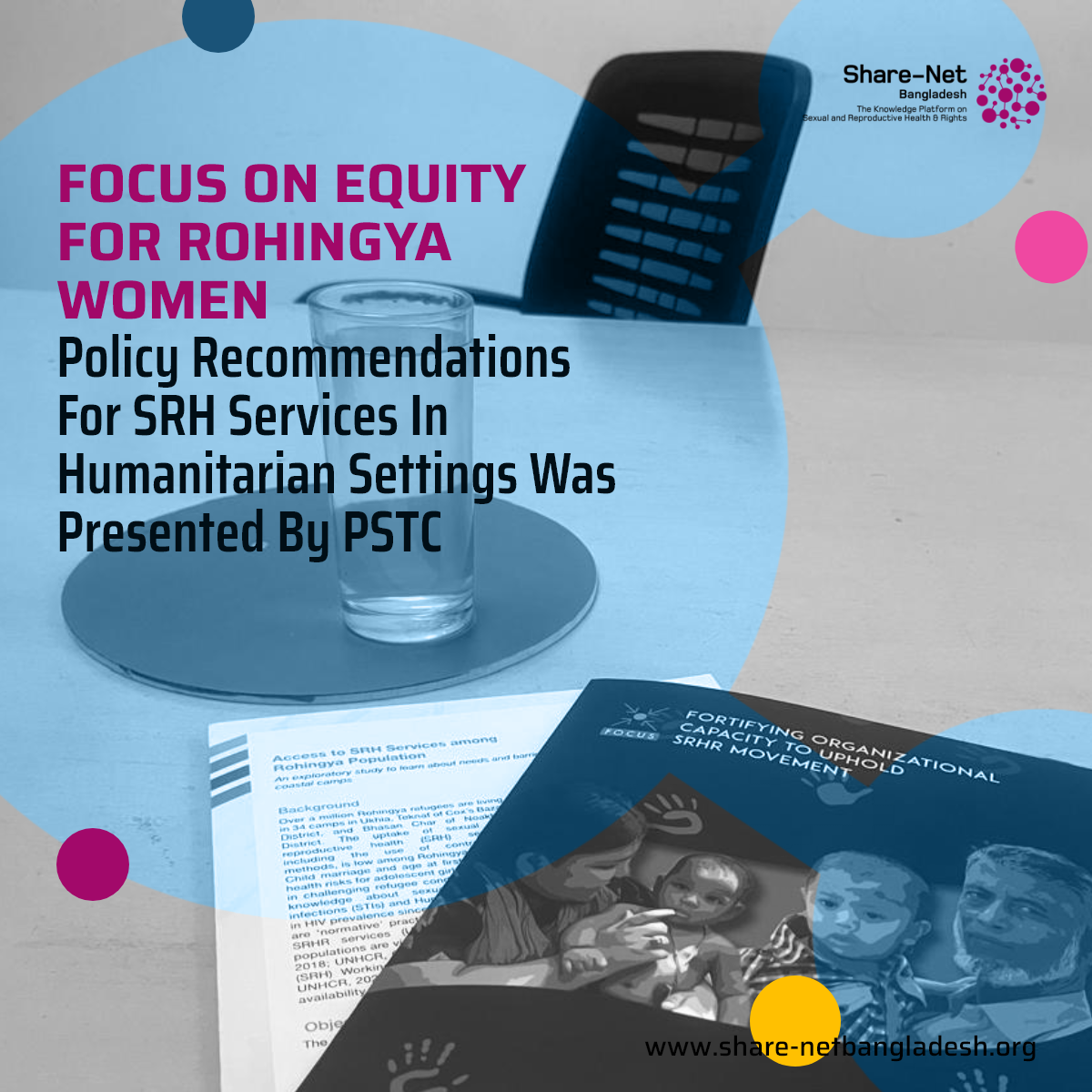Focus on Equity for Rohingya Women: Policy Recommendations for SRH Services in Humanitarian Settings was Presented by PSTC
A high-level dissemination event on Sexual and Reproductive Health and Rights (SRHR) services for the Rohingya population underscored the urgency of addressing barriers to equitable healthcare access in humanitarian settings. Hosted by FOCUS, an initiative of the Population Services and Training Center (PSTC) in collaboration with the International Planned Parenthood Federation (IPPF), the event unveiled critical policy recommendations drawn from recent research.
The study, titled “Access to SRH Services among Rohingya Population: An exploratory study to learn about needs and barriers in coastal camps,” highlighted key challenges and opportunities for improving SRHR services. Conducted with a lens on equity, the findings aim to inform policies and strengthen healthcare delivery for vulnerable communities.
The session, held at the Crowne Hotel in Gulshan 2, Dhaka, featured a detailed presentation by Dr. Mohammad Bellal Hossain, Professor at the Department of Population Sciences, University of Dhaka. Among the pivotal recommendations were:
- Strengthening Community-Based Services: Expanding community outreach and awareness programs tailored to the unique cultural and social contexts of the Rohingya population.
- Enhancing Coordination Among Stakeholders: Building robust collaborations between government bodies, non-governmental organisations, and international agencies to ensure streamlined service delivery.
- Prioritizing Comprehensive SRHR Services: Integrating SRHR into broader health programs to address intersecting needs like maternal health and family planning.
- Fostering Capacity Building: Training health workers in humanitarian contexts to deliver sensitive and inclusive care.
Distinguished guests, including Mr. Md. Saifullahil Azam, Director General of the Directorate General of Family Planning, and Mr. Mohammad Mizanur Rahman, Refugee Relief and Repatriation Commissioner (RRRC), joined the event. Panel discussions brought together experts such as Dr. Arpita Das from IPPF SARO, Dr. Quamrun Nahar from icddr,b, and Mr. Kazi Amdadul Hoque from Friendship Bangladesh, who shared insights into scalable strategies for SRHR in humanitarian settings.
“This study presents a roadmap for addressing disparities in healthcare for marginalised populations. It is a call to action for all stakeholders to ensure no one is left behind,” remarked Dr. Ikhtiar Khandaker, Director of the Health Program at CARE Bangladesh.
The event was wrapped up by a thoughtful summarisation by Dr. Noor Mohammad, Executive Director of PSTC, who emphasised the SRH needs of the Rohingya communities. The event reinforced the critical role of multi-sectoral collaboration in improving SRHR services in Cox’s Bazar and similar contexts. With over 900,000 Rohingya refugees in Bangladesh, the findings come as a timely contribution to shaping more inclusive and responsive health policies.

